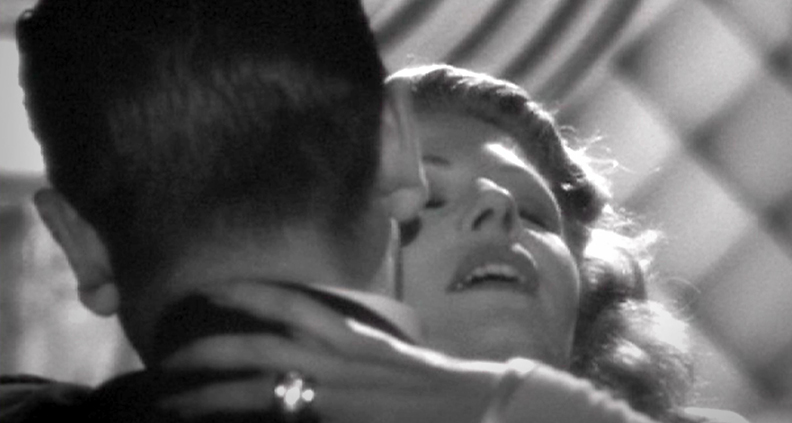The Fi Hall of Fame: Making Onscreen Sex Safe
Film Independent is currently in the middle of a Matching Campaign to raise support for the next 30 years of filmmaker support. All donations make before or on September 15 will be doubled—dollar-for-dollar up to $100,000. To kick off the campaign, we’re re-posting a few of our most popular blogs. The below piece originally ran in 2019. Thanks to author Meri Hilalian.
No matter who you are, as a filmmaker it’s imperative to approach any scenes of sex and nudity in your film proactively and professionally. It’s simple: establish boundaries and be both rigorous and consistent in your application of on-set rules. This will be your most important safeguard against sexual harassment and assault. Keeping your cast and crew safe means addressing concerns and thus pushing positive—and urgent—social change within the film industry.
Not sure where to start? Ask the experts—like Hollywood Intimacy Coordinator (and former sex and relationship coach) Amanda Blumenthal, who joined Film Independent August 13 to unpack the how-to’s of staging and shooting intimate scenes—from kissing to sex, nudity and beyond.
For intimacy coordinators, building a safe and comfortable set requires liaising with directors and actors to ensure that everyone is on the same page, while attempting to remain as true to the director’s vision as possible. She also helped shed some light on SAG-AFTRA nudity guidelines, offering plenty of tips about how to make sets safer and protect your actors’ wellbeing.
INTERRUPTING POWER DYNAMICS

But before we go any deeper, just what is the role of an “intimacy coordinator,” exactly?
Blumenthal explains that, due to the nature of performing a newly created job, defining the exact parameters of the position has been a work in progress. In a nutshell—in Blumenthal’s words—“an intimacy coordinator is there to make sure that actors are safe on set during nudity and simulated sex scenes.” How this role came to be? HBO paved the way. After the first season of The Deuce, Blumenthal says, so many of the actors had less-than-pleasant experiences with nudity and simulated sex that they expressed concern and requested an on-set advocate. The network took initiative, creating the role of intimacy coordinator.
What are some important aspects of the job? Blumenthal explained: “We act as a liaison between actors and production,” adding, “the reason why this is important is because it helps interrupt the power dynamic that occurs between actors and producers, or actors and directors.” Anyone who’s observed a film set knows it’s really difficult to say no—as an actor, especially—to people (often the director) who could potentially fire and replace you at a moment’s notice.
One of the great things about having an intimacy coordinator, according to Blumenthal, is that “I’m more than happy to hear you [the actor asked to perform in an intimate scene] say ‘no’ to me. That’s why I’m here, so that you get to have your boundaries.” Sometimes it’s a matter of simple communication. If a director feels uncomfortable or ill equipped to discuss intimacy with an actor, Blumenthal steps in to make sure that the lines of communication are open—softening conversations and forcefully expressing an actor’s boundaries to the filmmaker.
A-B-C, ALWAYS BE COMMUNICATING

For directors, learning how to tell your story while respecting your actors’ boundaries is a crucial skill. Scenes with sexual content are similar to stunt sequences, says Blumenthal. “What happens when you have nudity and stunts is that actors get burnt out really fast.” She added, “There have been situations where I’ve had to go to the director and say, ‘You have two takes left with your actors and then we have to be out of this, because this is a safety concern.’”
Facilitating clear communication and consent between actors is also important. According to Blumenthal, the conversation should sound like this: “Where do I want you to touch me, and where do I not want you to touch me?” She spoke to the importance of normalizing these conversations on set “especially if they [the actors] are going to be doing multiple scenes together,” she said. The onus is then on the intimacy coordinator to get these conversations going—and agreed upon.
An intimacy coordinator must also adhere to proper protocols, such as enforcing a true closed set. Blumenthal added, “Make sure that actors are wearing the right type of modesty garments.” Finally, she added, “We [intimacy coordinators] act as choreographers and movement coaches … Sometimes you’ll have actors doing simulated sex, and the thrusting doesn’t look believable—it’s not reading properly onscreen.” So the intimacy coordinator would intervene, ensuring the movement is translating correctly to the camera while preserving boundaries.
GUILD GUIDELINES

Under SAG-AFTRA, a concrete definition of nudity has yet to be firmly established. However, Blumenthal’s favorite definition comes from Showtime, as each studio has its own statement of what constitutes nudity. Blumenthal says the cable outlet defines it as, “The display of any body part which would be revealed if the actor were not wearing a bathing suit.” So if anything that’d typically be underneath a bathing suit is displayed onscreen, you’ll need a nudity rider.
“There are several types of nudity,” says Blumenthal, “and this comes into play when you’re dealing with nudity riders.” She advises that if there’s any hand-to-genital or genital-to-genital contact, that would require a rider. And you have to specify exactly what type of nudity the actors will be acting out. If it’s a straightforward sex scene, you would just indicate “simulated sex” in the nudity rider—which covers for “all types” of sex acts, she noted.
Blumenthal also explained that riders break down into above the waist nudity and below the waist nudity. Are you filming from the side? The front? The rear? “The nice thing about having these different gradations is that it gives actors options for how much they can show—and sometimes you can find a compromise,” Blumenthal said. “Say a director wants complete topless nudity and an actress isn’t comfortable showing her full breasts, but [is] willing to do side-breast nudity,” she said—there’s a mutual agreement, with the actress feeling comfortable without the director’s vision being compromised.
Dealing with intimate scenes and the private conversations that must be had to facilitate these moments isn’t always a comfortable experience. Relying on an Intimacy Coordinator to communicate consent and people’s boundaries is the key to having safe and positive on-set experiences. So take the plunge. Spend a little extra money and hire an intimacy coordinator.
Film Independent promotes unique independent voices by helping filmmakers create and advance new work. To become a Member of Film Independent, just click here. To support us with a donation, click here.
